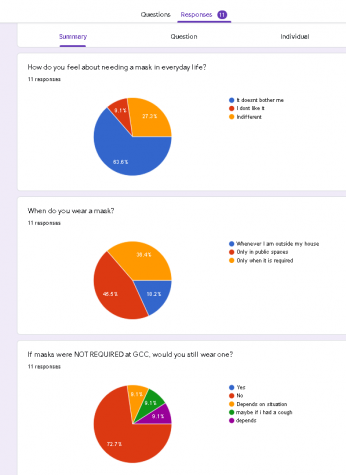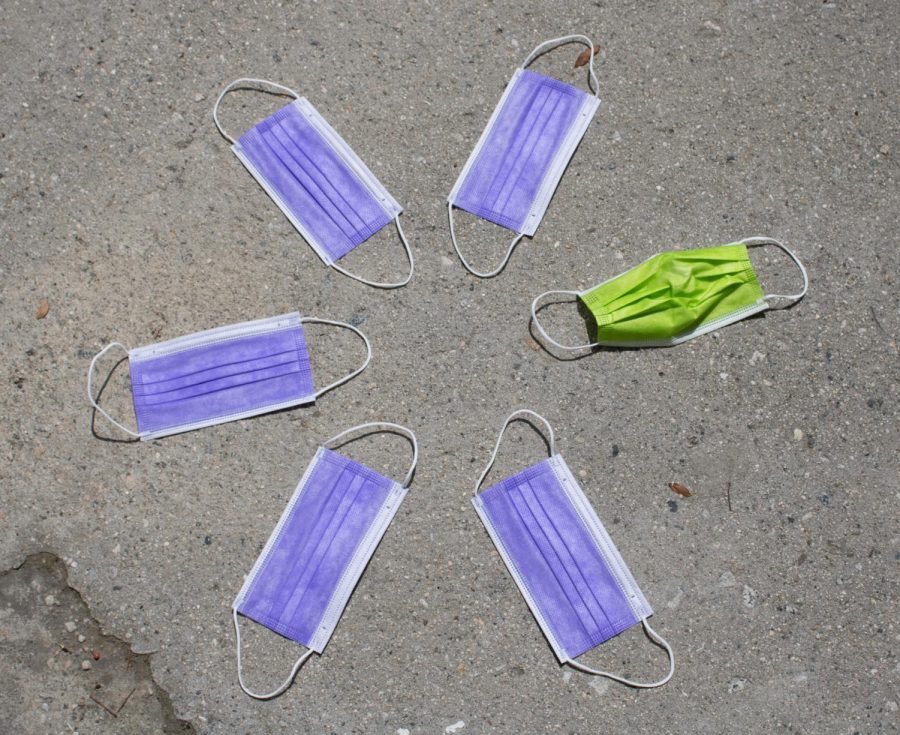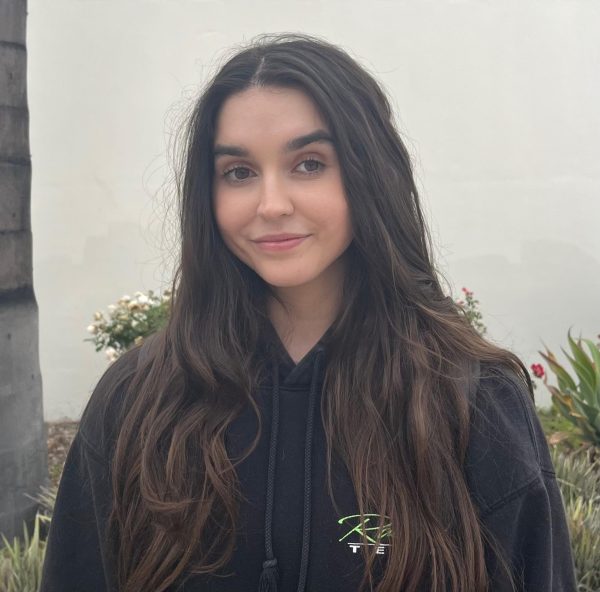What is the future of masking up?
Small survey shows many don’t mind masks, but also won’t wear them unless required
Are people ready to discard their masks or will they keep them around indefinitely?
The American public mostly adopted masks as an appropriate measure to combat the COVID-19 pandemic, but could masks in the United States have a future after the virus subsides? Could masks become an accessory of courtesy and safety, as they have in other countries?
Even with vaccines being rolled out by the millions, masks are still being worn by most millions when out in public.
Many establishments and institutions, including Glendale Community College, are implementing a slow reopening process that follows all Centers for Disease Control and Prevention recommendations and protocols. However, these advisories are always changing and can at times be controversial.
Vaccines and COVID-19 tests will not be required in order to be on campus, and masks will be required to be worn at all times, according to GCC officials answering questions about new campus safety guidelines at a GCC Town Hall meeting May 13th. In an earlier Town Hall meeting it was also stated that ”GCC will provide personal protective equipment to staff and students as needed and as required.”
For at least the upcoming fall semester, masks will be required on campus.
In an informal survey of 11 GCC students, most indicate that masks do not bother them, but they don’t plan on keeping them if they are not required. A small portion of students responding to a reporter’s survey said that they may consider a mask in certain situations, such as when they have a cough.

Dr. Anthony Fauci, chief medical adviser to the president, has said, “Masks may be here to stay.” He notes that masks are effective not only in preventing coronavirus, but also many other transmittable infections such as influenza. “A combination of an effective vaccine and adherence to certain public health principles will get us to the point where we want to be, by the end of 2021,” Fauci said.
Many experts say the consistent use of masks is especially important for those who are unable to be vaccinated, such as people with pre-existing medical conditions or young children.
On May 13, the CDC updated public health recommendations, saying “fully vaccinated people no longer need to wear a mask or physically distance in any setting, except where required by federal, state, local, tribal or territorial laws, rules and regulations, including local business and workplace guidance.”
However, many epidemiologists say that a determination on whether people should wear a mask should be based on the total percentage of the population vaccinated, and not on individual vaccination status. In this case, it is not always clear when a mask may be appropriate because in large groups every individual’s vaccination status may not be known.
You can expect to see masks in controlled areas such as the GCC campus for quite a while still, but what about in settings that are less disciplined? As safety protocols are eased and capacities are raised, how will masks fit in?
The SARS outbreak of 2003 left an impact on Asia which led to masks being regularly used in public over 15 years later. Will Coronavirus lead the U.S. down a similar path? Or will people, especially those who have opposed wearing masks, simply discard them?
In Japanese culture, it is considered polite to wear a mask if you are feeling under the weather or are symptomatic in any way. Other Asian cultures use masks to protect against environmental dangers, such as air pollution, and in some cases, to set social boundaries. An attitude like this toward masks is conceivable in the U.S. and could lead to a new trend of public behavior.
Jack Morris can be reached at [email protected].




